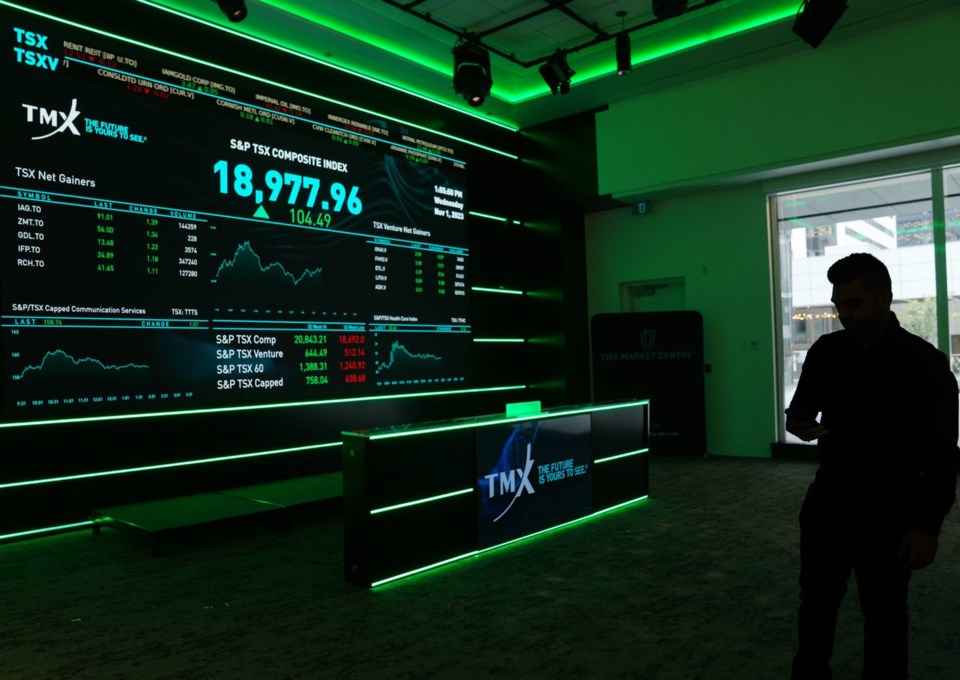TORONTO — Canada's main stock index rose almost 200 points Thursday, helped by strength in the telecom, utility and energy sectors
Meanwhile, U.S. stock markets were mixed as large tech names weighed on Wall St. despite interest rate optimism after the latest inflation report.
The S&P/TSX composite index closed up 193.90 points at 22,544.13.
In New York, the Dow Jones industrial average was up 32.39 points at 39,753.75. The S&P 500 index was down 49.37 points at 5,584.54, while the Nasdaq composite was down 364.04 points at 18,283.41.
The latest report on U.S. inflation showed a continued cooling in price growth in June, marking the first monthly decline in overall inflation since May 2020. The report came in cooler than expected, prompting bond yields to tumble amid building market optimism for interest rate cuts.
The report further raised the chance that the U.S. Federal Reserve will start cutting its key interest rate in September, said Adelaide Chiu, portfolio manager, vice-president and head of responsible investing at NEI Investments.
However, enthusiasm across the market for a potential rate cut wasn’t enough to keep Wall St. in the green on Thursday. Large tech names, specifically ones tied to the recent swell in optimism over artificial intelligence technology, dragged markets down.
The Nasdaq fell almost two per cent as companies like Nvidia and Tesla weighed on the index.
“There is a lot of concern about artificial intelligence and a lot of the companies that are investing in that space,” Chiu said.
The valuations of companies directly or indirectly exposed to AI have “significantly increased due to that growth expectation,” she said, and now the potential risk for those bets is a cause for concern.
As September approaches, Chiu said she expects to see a move toward companies that will benefit from interest rate cuts, and that haven’t really benefited from the optimism over AI.
On Wednesday, expectations of a September cut from the Fed were hovering around 70 per cent; on Thursday bets had climbed to 85 per cent.
At the beginning of 2024, markets expected more cuts and sooner, said Chiu, but those expectations were deferred as economic data came in stronger than anticipated.
“The expectations in the fall are now higher, and you see that in Canada as well.”
This week will end with a kick-off to earnings season in the U.S. as several major banks report results.
The banks often serve as a bellwether for how the consumer is doing, said Chiu.
“There’s ongoing concern about the consumer ... and whether or not the consumer is pulling back on discretionary spend,” she said.
“And so I think that's been a concern in the background for some of these U.S. companies, with respect to their loss reserves.”
The Canadian dollar traded for 73.40 cents US compared with 73.42 cents US on Wednesday.
The August crude oil contract was up 52 cents at US$82.62 per barrel and the August natural gas contract was down six cents at US$2.27 per mmBTU.
The August gold contract was up US$42.20 at US$2,421.90 an ounce and the September copper contract was down 10 cents at US$4.51 a pound.
— With files from The Associated Press
This report by The Canadian Press was first published July 11, 2024.
Companies in this story: (TSX:GSPTSE, TSX:CADUSD)
Rosa Saba, The Canadian Press



